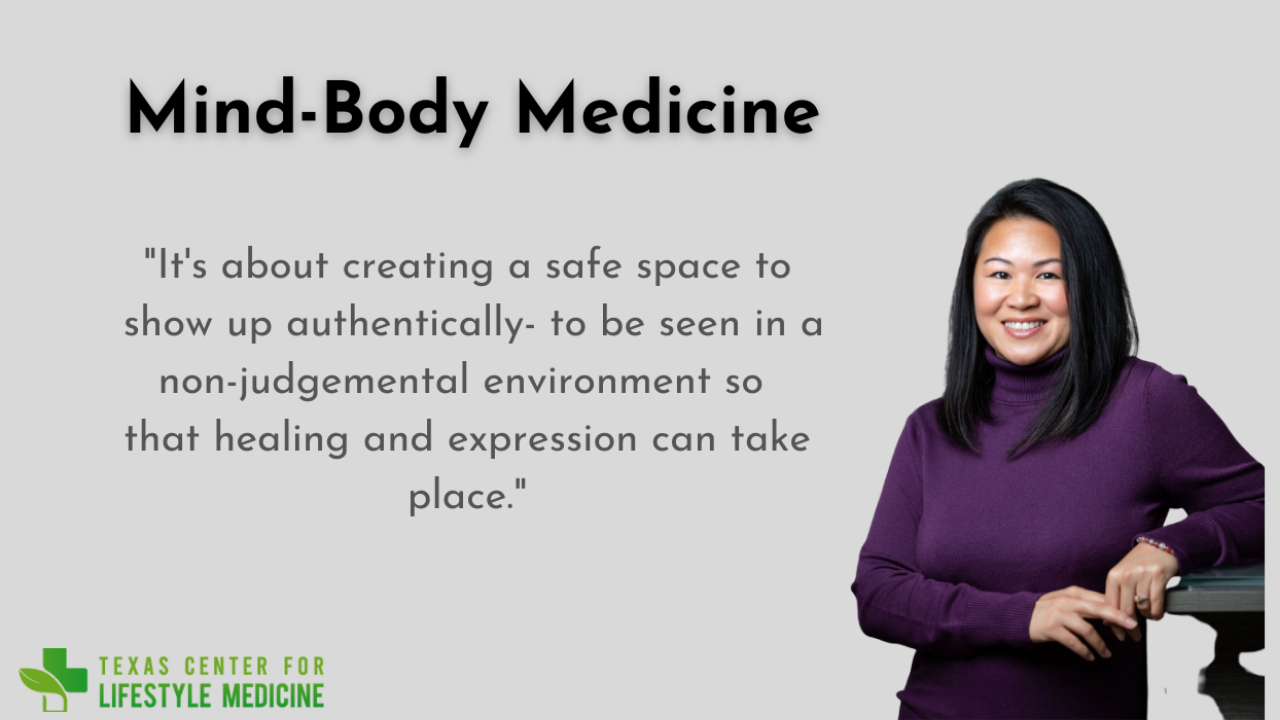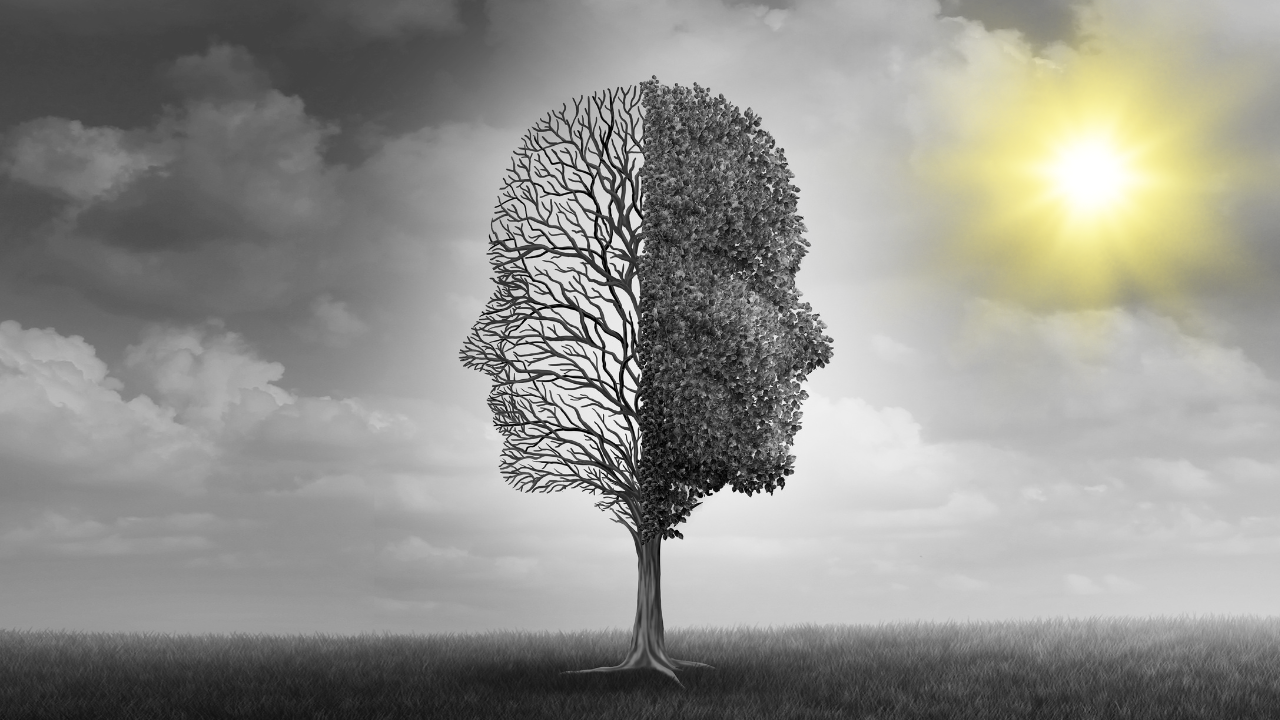Blog
Why we love our Tai Chi Group Visits!

Are you looking for ways to incorporate movement and reduce stress in your daily life? Mind-Body Medicine skills provide amazing healing tools to get you started in your healing journey- from self awareness, to intentional movement, breathwork, meditation, and rewiring stress responses- mind-body medicine provides life-changing skills for all, no matter what stage of life you are in.
One of our favorite Mind-Body session in the clinic is our Tai Chi class. Tai Chi is a Chinese martial art that has been practiced for centuries and offers numerous physical, mental, and emotional health benefits. It combines slow and gentle movements with deep breathing techniques that help to reduce stress levels, improve balance, increase flexibility, build strength, and boost overall well-being. Intentional movement allows the body to connect to the mind, offering a drastic decrease in stress response, an ability to ground oneself, and an increased level of self-awareness. We have seen firsthand th...
Mind-Body Medicine- More than Just Tools

Mind-body medicine has played a vital role in the healing journey of many of our patients, addressing underlying emotional concerns and expressing belief systems in a non-judgmental environment. Mind-body medicine sessions offered in the clinic are more than just learning tools such as breathing, meditation, and movement; they're about discovering how to incorporate them into our lives in order to manage our emotions and triggers differently. Mind-body medicine is about embodying self-awareness so that we can genuinely transform our minds and regulate our emotions. The mind-body skills practiced in group sessions give us the opportunity to become aware of ourselves on a deeper level and learn how to manage our thoughts, feelings, and behaviors.
Here is what one can expect when attending a mind-body group visit in the clinic or virtually:
- Leave your judgments toward yourself and others at the door! Mind-body medicine is all about creating space to feel, release, and discuss trap...
What the Body Teaches us about Trauma

What the mind suppresses the body expresses.
Have you ever gone through a painful or traumatic experience and felt it physically in your body? Maybe you thought it was just a coincidence that your muscles started to ache, your stomach felt a bit off, or fatigue suddenly increased around the time of the event.. For some, the emotional impacts may have a delayed physical manifestation. Though it may seem coincidental, studies have proven that there are indeed physical impacts of trauma and emotions may be stored in the body, which may manifest in a variety of ways.
Here at TCLM, we do not separate emotional states of being from the body. Rather, we view emotions as real experiences that impact the body, just as much or even more than physical triggers to our physiology. Emotions have been described as "energy in motion." Energy that has no space or opportunity to be moved is energy that becomes trapped and stagnant. When this pattern perpetuates, just like physical triggers we can s...
Group Visit Spotlight: Master Mind Session in Mind-Body Medicine with Geny Moreno

To say that we do not experience stress daily would be to deny the type of society and system we live in. However, stress does not have to rule us, rob us of our peace, or govern our responses and reactions to external triggers. Discover powerful tools in Mind-Body Medicine sessions that will help you develop your resiliency to stressful situations and control your emotional responses while learning to manage and express emotions. Patients who attend mind-body sessions in our clinic discover better ways of coping and practice consistent self-awareness, which we have seen improve their physical and mental well-being. The mind is so intricately connected to the body, so much so that it is so challenging to prevent and heal chronic illness without engaging in mindfulness practices and working on the mental aspects of healing.
Mind-Body Medicine practitioner, Geny Moreno, takes great pride in her work in guiding patients with the tools and training that she has implemented and continue...
Practitioner Spotlight- Geny Moreno, Mind-Body Medicine Practitioner

Mind-body techniques are part of my existence. It is the operating system in which I operate. Food and nutrition are one of the most important aspects of mind-body medicine that I practice. Movements are also part of my life and can vary from hiking to resistance training to tai chi and qigong.
Meditation, imagery, and special breathing techniques help me battle stress both internally (from within) and (externally) from my environment.
I previously worked in the aerospace industry for 14 years as a computer software analyst/engineer. I worked on the International Space Station program, Constellation, and my last project was in wearable technology.
In February of 2014, I decided to leave my NASA family behind to finally pursue my passion in holistic health and wellness. This was a very hard decision for me. However, I felt a moment of clarity, the kind that I had not felt in such a long time. So without any hesitation, I enrolled in the Functional Diagnostic Nutrition program. Aft...
Celebrating Emotions

Our inner world of emotions is beautifully complex, having the ability to shape our physiology for better or worse depending on what we do with our emotions. Unfortunately, most of us were not taught emotional regulation techniques or emotional coping skills growing up. When left to our own devices, most of us will either adapt behaviors to distract ourselves from painful emotions, suppress or feelings, or develop very poor ways of expressing them. These defense mechanisms and coping strategies are often learned at a very early age and become ingrained into our subconscious, based on what we witnessed growing up.
We do the best we can with what we know at the time, but sometimes what we assume to be a healthy way of coping is actually detrimental to our physical and emotional well-being. We have to be careful to not confuse "normal" with healthy. It takes courage to confront ourselves, our emotions, and our coping strategies but it is so worth it for the betterment of our health...
Transforming Trauma

Trauma is an injury to our mind, body, and spirit. It's quite evident that trauma can change the way we process emotions, the state of our mind, and our mental functioning. However, many are not aware of just how much trauma impacts our physiology. When we undergo trauma, it causes changes to the structure of our brain, cellular performance, epigenetic expression, hormone and neurological balance. Most of us associate trauma with extreme tragedies, such as war, abuse, natural disasters, etc. These are indeed quite obviously traumatic. However, there are other forms of trauma often referred to as "little 't' traumas" that have impacted or will impact all of us at some point. These could include traumatic experiences such as being raised in a dysfunctional home, growing up with a parent who struggled with addiction, managing a chronic illness, experiencing loss, etc.
When we undergo trauma, whether the experience was a major or minor traumatic experience, it can manifest in physical ...
Breath- The Most Underrated Aspect of Healing

At the core of every cell in our bodies lies the mitochondria, a beautifully complex organelle responsible for producing energy in the form of ATP. This crucial cellular process relies on a steady supply of oxygen, as its greatest nutrient to exchange for energy. It is through this process that we are able to carry out every and any biological process.. the beating of our heart, the division of cells for regeneration, DNA replication and revision, digestion, movement, and the list could go on and on. Breath is something that the majority of us do not pay close attention to or know how to take advantage of for our healing. Yet it is a free way to promote energy and vitality!
In addition to its critical role in energy production, oxygen also plays an important role in many other aspects of health and well-being. It is for regulating nitric oxide levels, enhancing blood circulation, and maintaining healthy brain function. When we breathe shallowly, with our chest, we are robbing ou...
Meditation: Different Types and their Benefits!

Meditation is a powerful tool for healing and self-awareness. By focusing on the present moment, meditation allows memories and emotions to come to the surface, engaging all of our senses and promoting body awareness. This can help us better understand our triggers and address any underlying issues that may be causing issues in our physical or mental health. It allows us to confront the problems in our mind and body that are impeding our growth toward physical and mental health.
In addition, there is growing evidence that meditation can improve both mental and physical health by reducing stress levels, improving memory and cognitive function, and even affecting gene expression. With regular practice, meditation can truly become a transformative force in our lives, helping us achieve greater self-understanding and well-being. So if you're looking for a way to promote emotional healing and self-awareness in your life, consider incorporating meditation into your daily routine.
...
